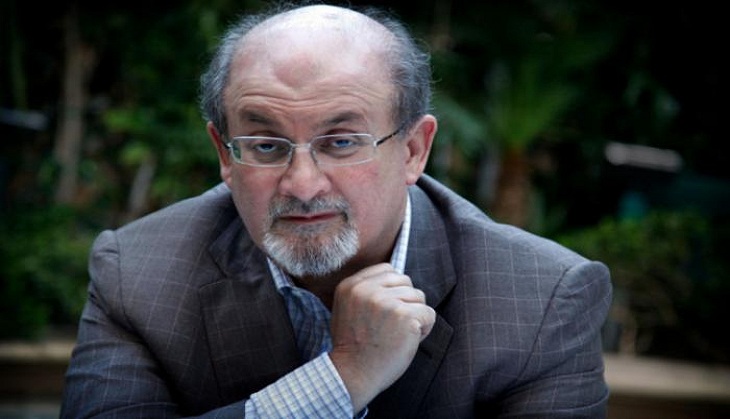
For the longest time, a clampdown on freedom of expression, critique and contradicting ideologies, was deemed to be the forte of the right wing. Intolerance has always been thought of as the right-winger's prerogative.
In recent times, however, the narrative seems to have transformed into one where the modern left has discarded its ideology to uphold freedom of expression, choosing instead to suppress conservative voices altogether.
Booker Prize-winning novelist Salman Rushdie, who has courted a copious amount of controversy in his lifetime surrounding his critique of religion, says that the "liberal spirit of appeasement" and of "political correctness" has resulted in the shrouding of some pertinent issues.
In an interview with BigThink, Salman Rushdie talks about the liberal clampdown on dissent. "Conservatives both in Europe and America used to criticise people for criticising religion. That used to be a right-wing polemic. Now it's become a left wing-polemic", he says.
He recalls his own experiences of having faced backlash from Islamic communities, with Iranian leader Ayatollah Khomeini issuing a fatwa against him, following the publication of his novel, The Satanic Verses.
Things were different then, he says. The backlash Rushdie faced for his critique of Islam came from "The God squad" - right-wingers who sympathised with Islamic religious leaders in their protests against him.
In this day and age, however, intolerance seems to be stemming from the left-leaning ranks. Muslim populations in various parts of America and Western Europe are often economically-disadvantaged and are subject to discrimination and prejudice. Their predicament - however dismal - does not entail the fact that the critique of the religion they belong to amounts to an attack on these minority groups, Rushdie explains.
The left, with their agenda of appeasement, does not approve of criticising minority communities. And this is what Rushdie attempts to highlight.
"It is one thing to say people must not be discriminated against. But to say that an idea becomes illegitimate, or legitimate because they're held by disadvantaged people, is a flaw", Rushdie says.
Stressing on the importance of upholding freedom of expression, he goes on to say, "It is very important to remember that when free expression is diminished or restricted, it is usually the minority groups that suffer first. It's their free expression that is restricted before that of the majorities. So, it is always in the interest of the minority communities to defend free expression, because their own rights are involved."
Defending the right to criticise religion, and Islam in particular, Rushdie goes on to talk about the problem of Islamic Terrorism, and the tendency to divorce the Islamic religion from the terror attacks that are being carried out in the name of Islam.
He treads on sensitive territory, when he opines that the Islam that the Islamic State claims is the driving force behind their atrocities is still Islam. "If everybody engaged in acts of Islamic terror says that they're doing it in the name of Islam, who are we to say they're not?" Rushdie asks.
The problem, he clarifies, lies in the fact that the religion has been mutated, interpreted in dangerous ways by various groups of people, unleashing terror across the world.
"The problem is that there's been a mutation in Islam that has become unusually virulent and powerful, and it has to be dealt with. But in order to deal with it, it has to be called by it's true name," he says.
Rushdie explains that even the Islam that the terror groups uphold is a form of Islam. A form that kills more Muslims than anyone else. And the only way to combat these attacks, is to recognize the problem, accept critique and take the necessary steps to curb the exploitation of Islamic beliefs at large, he says.
Watch the full interview here:







![BJP's Kapil Mishra recreates Shankar Mahadevan’s ‘Breathless’ song to highlight Delhi pollution [WATCH] BJP's Kapil Mishra recreates Shankar Mahadevan’s ‘Breathless’ song to highlight Delhi pollution [WATCH]](https://images.catchnews.com/upload/2022/11/03/kapil-mishra_240884_300x172.png)

![Anupam Kher shares pictures of his toned body on 67th birthday [MUST SEE] Anupam Kher shares pictures of his toned body on 67th birthday [MUST SEE]](https://images.catchnews.com/upload/2022/03/07/Anupam_kher_231145_300x172.jpg)






